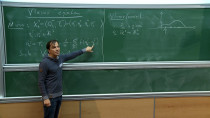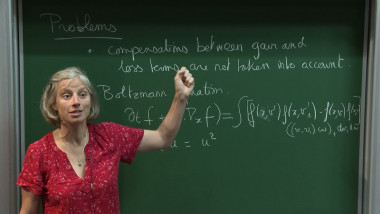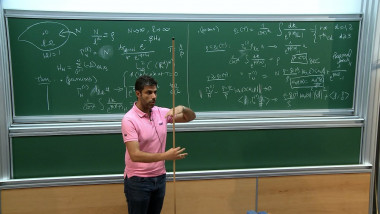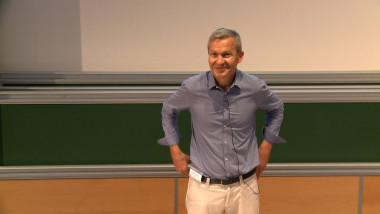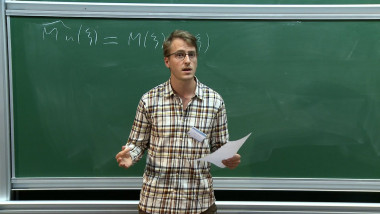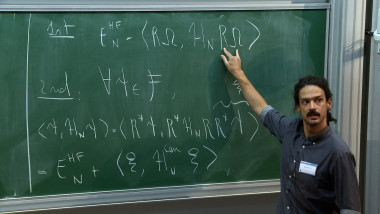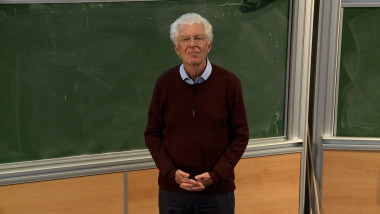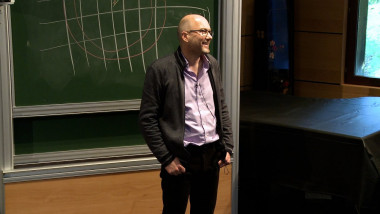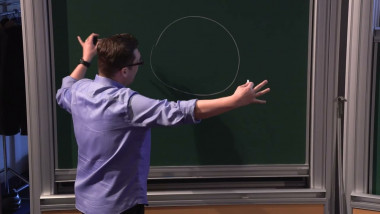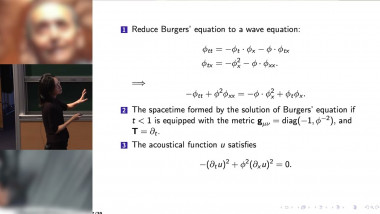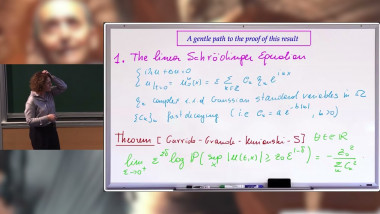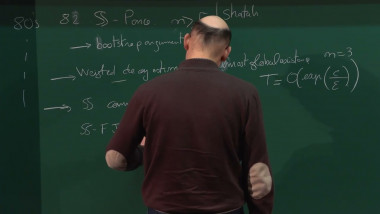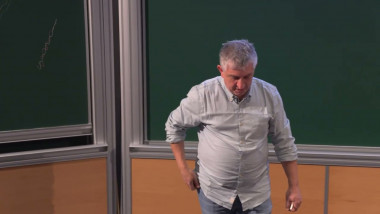On the Derivation of the Kinetic Wave Equation
The kinetic wave equation arises in weak wave turbulence theory. In this talk we are interested in its derivation as an effective equation from dispersive waves with quadratic and cubic nonlinearities for the microscopic description of a system (Nonlinear Schrodinger equations with random initial data). We will comment on space-homogeneous and inhomogeneous cases (equation on the torus and on the whole space). More precisely, we will consider such dispersive equations in a weakly nonlinear regime, and for highly oscillatory random Gaussian fields with localised enveloppes as initial data. A conjecture in statistical physics is that there exists a kinetic time scale on which, statistically, the energy spectrum of the solution evolves according to the kinetic wave equation.
I will present joint works with Ioakeim Ampatzoglou and Pierre Germain (Courant Institute, NYU), in which we approach the problem of the validity of this kinetic wave equation through the convergence and stability of the corresponding Dyson series. We are able to identify certain nonlinearities, dispersion relations, and regimes, for which the convergence indeed holds almost up to the kinetic time (arbitrarily small polynomial loss).











